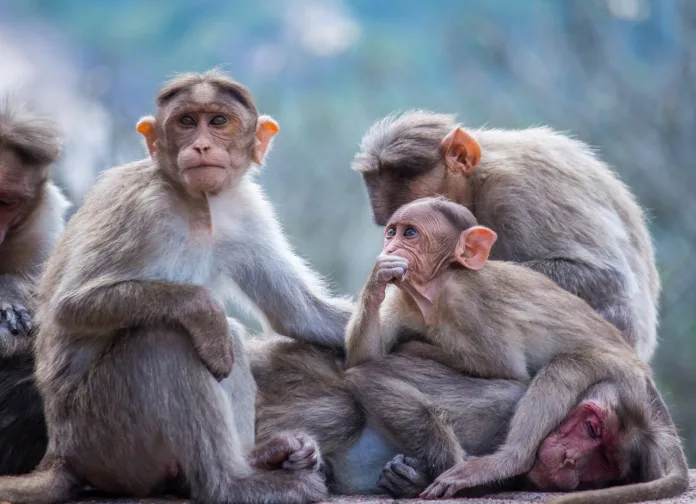Authorities urge caution as they continue to search for the remaining escaped Rhesus macaques, but confirm they pose no threat to public health.
Law enforcement in South Carolina has successfully recaptured one of the 43 rhesus macaque monkeys that escaped from a biomedical research lab earlier this week. On Saturday evening, the Yemassee Police Department confirmed that a young female monkey had been safely returned to the Alpha Genesis Primate Research Center, where she had been housed before the escape.
The young rhesus macaque is reportedly doing well, and according to Alpha Genesis CEO Greg Westergaard, she is being well cared for with a “peanut butter and jelly sandwich” to help her settle back in. However, while one monkey has been returned, the search continues for the remaining 42 primates who fled the facility last Thursday.
The escape occurred after a caretaker inadvertently failed to secure a door, allowing the young monkeys to break free. These monkeys, all female and part of the research lab’s efforts to supply pathogen-free primates for biomedical research, caused a stir in the local area when they ran into the wild.
While the escape has raised public concern, the Alpha Genesis lab has reassured the public that the monkeys do not pose a health risk. The animals have not been exposed to testing and are too young to carry any diseases that could endanger humans. However, the lab has cautioned people to avoid interacting with the monkeys and urged them to refrain from flying drones in the area, as the sound and movement could further disturb the animals.
The escaped monkeys have been spotted near the facility’s fence line, and Alpha Genesis is actively setting food-baited traps to capture them. In the meantime, local authorities continue to monitor the situation closely.
Rhesus macaques have been used in medical research for centuries due to their genetic similarity to humans, sharing approximately 93% of the same DNA. These primates have played a critical role in the development of life-saving vaccines, including those for Covid-19. Despite the current escape, researchers continue to emphasize the importance of maintaining a stable supply of rhesus monkeys for biomedical advancement.
The ongoing search for the remaining monkeys underscores the challenges faced in managing nonhuman primates in biomedical research settings. While authorities work to recover the escaped primates, Alpha Genesis remains focused on ensuring the safety of both the animals and the public.
